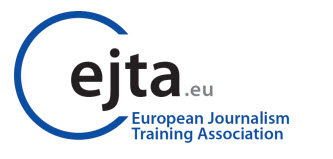Media literacy is essential for navigating the rapid spread of disinformation, in today’s digital world. The ability to access, analyze, and create media content fosters critical thinking, empowering individuals to become active, informed digital citizens.
Media literacy is also crucial for distinguishing between quality journalism that has been going through a dynamic digital transformation (generally described as accurate, fact-based, fact-checked, unbiased, balanced, contextualized, reliable, investigative and objective reporting), and non-journalistic content (usually based on emotional storytelling disseminated on social media platforms, generating an emotional participatory media – fostering both more well-informed citizens, but also the spread of misinformation and fake news).
Democracy is not a given—it requires continuous effort, grounded in education, freedom of expression, digital accessibility, and trust. EJTA advocates for quality journalism and its advancement as a vital component of a healthy democracy. By collaborating with various societal actors, we strengthen the foundations of both media literacy and journalism, both of which are critical for building resilience to disinformation and safeguarding democracy.
Our approach includes strategic partnerships, project collaborations, seminars, teacher training, and curriculum development—all focused on enhancing media literacy and promoting independent, trustworthy quality journalism. Therefore, media literacy education, encompassing journalism education, could contribute to the enhancement of quality journalism as a fundamental factor for a democratic society.
